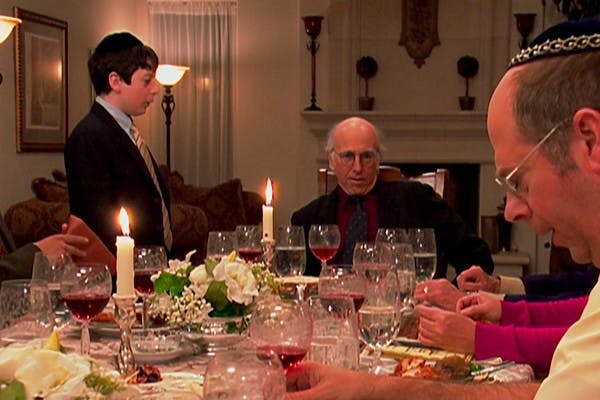Published: 18 December 2023
Last updated: 5 March 2024
A new book shows what can happen to a small community of Jews, frightened by the past and fearful of the future.
There have been commemorations this year to mark several anniversaries: the assassination of President Kennedy (1963), the Yom Kippur War (1973), the Oslo Accords (1993). And less obvious ones that many in Jewish communities would prefer to forget such as the electrocution of Ethel and Julius Rosenberg in Sing-Sing prison in 1953.
Into this latter category, can also be placed the military coup of General Augusto Pinochet and the death of President Salvador Allende in Chile in 1973, when thousands were imprisoned, tortured and executed.
“The dirty war” in neighbouring Argentina in the 1970s took the lives of many Jews, murdered by a military junta in torture centres such as the Escuela Superior de Mecánica de la Armada (ESMA) or drugged and thrown naked, out of airplanes, into the icy waters of the South Atlantic. However, less has been documented about the killing of Jews in neighbouring Chile under the military dictatorship.
A recent book by the American writer, Maxine Lowy, entitled Latent Memory: Human Rights and Jewish Identity in Pinochet's Chile has reclaimed the names of Jews who were “disappeared”, leaving no trace. It also records the acquiescence of communal leaders in pampering the generals while distancing themselves from those Jews who – alienated from communal norms – were persecuted by the regime.
Diana Aron and Juan Carlos Perelman were killed at Villa Grimaldi, a detention and torture centre. Carlos Berger was sentenced to 60 days imprisonment shortly after Pinochet's coup, then suddenly removed and shot on the road between Calama and Antofagasta.
There were also heroes who did not adopt the leadership's line, such as the Israeli Ambassador, Moshe Tov. He organised a procession of vehicles, driven by Israeli diplomats, carrying young Chilean Jews to Santiago airport and then onwards to the safety of Israel.
The Swedish Ambassador, Harald Edelstam, was stationed in Oslo during World War II and helped hundreds of Norwegian Jews to escape to neutral Sweden. Known as “the Black Pimpernel”, he found himself posted to Chile in 1972.
Following the coup, Edelstam repeated his actions of over 30 years before – and helped over a thousand Chileans, foreign diplomats and refugees, to escape the country. Pinochet did not take this well and Edelstam was declared persona non grata a few weeks later.
In the many tributes and appraisals of Henry Kissinger, following his death last month, several mentioned his infamous support for the military overthrow of Salvador Allende's regime.
Swedish ambassador Edelstam helped over 1,000 Chileans, foreign diplomats and refugees to escape.

The Chilean coup was part of Operation Condor, a CIA-approved network to suppress the revolutionary Left in several Latin American countries during the 1970s. The generals, however, went far beyond attacking the Montoneros and Tupamaros guerrillas, and ended up killing teachers, writers and nuns.
They did not shrink from using the services of Nazi war criminals in Latin America such as Klaus Barbie. During the Dirty War in Argentina a disproportionate number of Jews were killed – often in the name of Christian civilisation.
Although the DINA, the Chilean secret police, was responsible for killing Allende's Minister of Defence, Orlando Letelier, along with his Jewish assistant, Ronni Moffitt, with a car bomb in Washington in 1976, unlike their Argentinian counterparts their actions never carried the stench of antisemitism. José Berdichewsky was the Yiddish-speaking head of the Chilean air force under Pinochet and subsequently, the Chilean ambassador to Israel. He was feted by the leadership of the Jewish community in Chile.
There was, however, another “community” of Jews which was associated with the Chilean Left – some proclaimed their Jewishness, others hid it. Still others, associated with the Zionist youth group, Hashomer Hatzair, intended to live in Israel but while they were in Chile aligned themselves with progressive political elements. Pinochet's men repeatedly raided Hashomer House on Los Capitanes Street in Santiago.
Maxine Lowy notes that Salvador Allende had a record of helping Jews, fleeing from the Nazis, as far back as 1939. When he was elected in 1970, Allende appointed about 20 people of “Jewish origin” to his government. His program of nationalisation included the Banco Israelita du Chile, American-owned copper mines and the redistribution of lands to destitute tenant farmers – all of which did not endear him to sections of the Jewish community. As in Castro's Cuba, thousands left.
Many Jews had originally arrived in Chile, fleeing authoritarian regimes, during the 1930s.
Allende had a record of helping Jews, fleeing from the Nazis, as far back as 1939.
The difficulty in attempting to tar Allende with charges of antisemitism was that he had been close to the Histadrut and to Israel’s left-wing Zionist party, Mapam – whose political secretary, Naftali Feder, had been present at the presidential inauguration in 1970.
Allende had expressed his support for oppressed Jews in the Soviet Union and for the plight of Jews in Arab lands despite the large Arab community in Chile. Moreover, some 200 Israelis were working in Chile to study methods of irrigating arid land. Allende argued that the Middle East conflict could only be solved “within the parameters of the Jewish state’s right to exist and to survive”.
The death of Allende in September 1973, following the bombing of La Moneda presidential palace, shocked the governing Israeli Labour party – especially since Allende had accepted an invitation to visit the country from President Zalman Shazar. Prime Minister Golda Meir condemned the coup.
While many in the communal leadership in Chile were pleased with this turn of events, it put them at odds with members of Hashomer Hatzair who had campaigned for Allende. The Jewish leaders swiftly moved from a position of strict neutrality under Allende to “outright support for the military regime”.
It created a schism between those who wished to cultivate the military regime and those who kept their distance. There were some such as Rabbi Angel Kreiman who joined Cardinal Raul Silva Henriquez in forming the Committee of Cooperation of Peace in Chile. And there were those “Chileans of the Jewish faith” who signed a letter in August 1974:
“We have read with great indignation in La Segunda that Rabbi Angel Kreiman has had the audacity to request pardons for the Marxists who have been jointly punished by the honourable Government... the rabbi, like his great friend, Salvador Allende, has had the power to divide the Jewish community as the vast majority does not tolerate him and this signed letter provides the opportune moment to suggest that he leave the country soon.”
Several communal leaders refused to help fellow Jews – whether estranged or committed – to escape the military junta's lethal embrace. Maxine Lowy reports that community leaders told staff at the US Embassy shortly after the coup that 95% of Chilean Jews were “avidly pro-Junta”.
The Jewish communal leadership became progressively out of step with many younger Chilean Jews.
Over the years opinions began to change. In the United States, the election of Jimmy Carter and the Democrats put Kissinger out to intellectual pasture. Senator Edward Kennedy initiated legislation that tied military aid to Chile to fundamental human rights and the rule of law. In Israel, however, successive Likud government demonstrated no such qualms and sold arms to the Chilean regime.
The Jewish communal leadership became progressively out of step with many younger Chilean Jews. Despite the fact that Pinochet's crimes were becoming well-known at home and condemned abroad, in September 1988 Jewish leaders announced an event in honour of Pinochet but were profoundly denounced by a group of outraged Jews.
With the return of democracy to Chile in the 1990s, a ceremony to remember 15 Chilean Jews murdered by the military regime, was held in the presence of Hortensia Bussi, the widow of Salvador Allende. She gave a red carnation to the members of the families of those who did not live to see that day.
In 1997, Pinochet's Jewish victims were remembered on Tisha B'Av. In December 2006, 300 people attended an event at the Peace Park Wall of Names – this time in the presence of the president of the community and the Israeli Ambassador. As in a stone-setting, the members of the audience were asked to place a stone by the Wall.
This has been a year of lamentations. A year when decent people have felt marooned on desolation row, unable to change the flow of history. It has rekindled the sense of despair that took hold when Czechoslovakia was invaded in 1968 by the Soviets and when Salvador Allende was overthrown in 1973.
Maxine Lowy's book shows what can happen to a small community of Jews, frightened by the past and fearful of the future – and how Jewish values can be buried to serve the expedient present.
At the end of the book, there is a Yizkor page where the names of the 15 Jews are recalled - a traumatic ending to a revelatory book.




